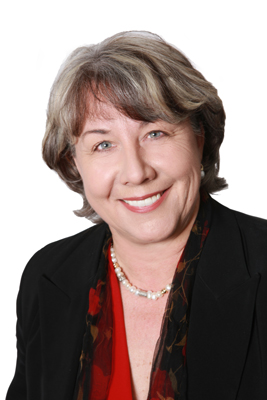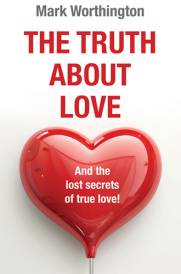Karen Kaye Complementary Medicines Are Medicines Too Interview

Complementary Medicines Are Medicines Too
Complementary medicines such as herbal supplements and vitamins are often considered less powerful than prescription medicines, but can still cause side effects in some people, and may interact with other medicines and food, according to NPS.
The latest edition of MedicinesTalk, published by NPS, an independent organisation encouraging people to be medicinewise, includes an article on finding answers about complementary medicines. NPS Head of Programs, Ms Karen Kaye, says complementary or natural medicines should be given the same consideration as other medicines, despite the fact that information about them can often be harder to find.
'When someone is selecting a medicine – whether prescription, over-the-counter or complementary – they should ask questions about whether a medicine is needed in the first place, how effective the medicine might be for their condition, and what the possible side effects could be," said Ms Kaye.
People can get answers to these questions by talking to their doctor, pharmacist, or complementary health care provider about the medicine they're considering taking, and asking whether they think it might be beneficial.
No medicine, even natural and herbal medicines, is completely free of side effects. For example valerian, a herb that is sometimes used to improve sleep, can cause headaches and vivid dreams, and echinacea, sometimes used to ward off infections and reduce the duration of colds, may worsen asthma.
'It's also important to ask questions about whether the complementary medicine might interact with any other medicines or food, and what the right dose is for your individual situation," said Ms Kaye.
St John's wort, for example, is used to alleviate depression, but can interact with several commonly used prescription medicines including the oral contraceptive pill, the heart medicine digoxin, the blood-thinning medicine warfarin, and some other antidepressant medicines.
'Your doctor and pharmacist need to know about all your medicines so they can consider any possible interactions when recommending other medicines for you. Make sure you tell them about any complementary medicines you are taking, and include them on your Medicines List so you have a record," said Ms Kaye.
Other articles in the latest edition of MedicinesTalk cover gadgets to help with taking medicines, what to do with unused medicines, and how to find out your heart and stroke risk score. To read the full articles, go to www.nps.org.au/consumers/publications/medicines_talk
For more information about your medicines, call the Medicines Line on 1300 MEDICINE (1300 633 424). For verbal translation assistance call the Translating and Interpreting Service on 131 450.
The latest edition of MedicinesTalk, published by NPS, an independent organisation encouraging people to be medicinewise, includes an article on finding answers about complementary medicines. NPS Head of Programs, Ms Karen Kaye, says complementary or natural medicines should be given the same consideration as other medicines, despite the fact that information about them can often be harder to find.
'When someone is selecting a medicine – whether prescription, over-the-counter or complementary – they should ask questions about whether a medicine is needed in the first place, how effective the medicine might be for their condition, and what the possible side effects could be," said Ms Kaye.
People can get answers to these questions by talking to their doctor, pharmacist, or complementary health care provider about the medicine they're considering taking, and asking whether they think it might be beneficial.
No medicine, even natural and herbal medicines, is completely free of side effects. For example valerian, a herb that is sometimes used to improve sleep, can cause headaches and vivid dreams, and echinacea, sometimes used to ward off infections and reduce the duration of colds, may worsen asthma.
'It's also important to ask questions about whether the complementary medicine might interact with any other medicines or food, and what the right dose is for your individual situation," said Ms Kaye.
St John's wort, for example, is used to alleviate depression, but can interact with several commonly used prescription medicines including the oral contraceptive pill, the heart medicine digoxin, the blood-thinning medicine warfarin, and some other antidepressant medicines.
'Your doctor and pharmacist need to know about all your medicines so they can consider any possible interactions when recommending other medicines for you. Make sure you tell them about any complementary medicines you are taking, and include them on your Medicines List so you have a record," said Ms Kaye.
Other articles in the latest edition of MedicinesTalk cover gadgets to help with taking medicines, what to do with unused medicines, and how to find out your heart and stroke risk score. To read the full articles, go to www.nps.org.au/consumers/publications/medicines_talk
For more information about your medicines, call the Medicines Line on 1300 MEDICINE (1300 633 424). For verbal translation assistance call the Translating and Interpreting Service on 131 450.
Interview with Karen Kaye
Karen Kaye is the Head of Programs at NPS.
Question: On average are herbal supplements and vitamins less powerful than prescription medicine?
Karen Kaye: Complementary medicines such as herbal supplements and vitamins are often less powerful than prescription medicines " but they still need to be used with care.
Like all medicines, herbal supplements and vitamins can have benefits. However, they can also have side effects, cause allergic reactions, and may interact with prescription, over-the-counter and other complementary medicines.
Question: What questions should a patient be asking to ensure these supplements are used safely?
Karen Kaye: Five questions you should always ask before taking a medicine (whether a prescription, over-the-counter or complementary medicine):
1. What is the medicine for?
2. What is the active ingredient?
3. How do I use or take this medicine correctly?
4. What are the possible side effects and what can I do about them?
5. What should or shouldn't I do while taking this medicine?
Your doctor, pharmacist or other qualified health professional can help answer these questions for you and give you the information you need about possible side effects. Your pharmacist is usually best placed to provide you with information about interactions with other medicines relevant to your particular circumstances.
If you want to search for information about herbal or vitamin supplements yourself it's best to seek out reputable and balanced sources of information, such as government organisations. A good place to start is the US National Institutes of Health National Center for Complementary and Alternative Medicine, MedlinePlus, myDr and HealthInsite.
Other trusted sources to help people get the answers they need about medicines include the consumer medicines information (CMI) leaflet (for prescription and pharmacist-only medicines) and NPS medicine and health information. You can speak to a qualified health professional about your specific medicines questions by calling the Medicines Line on 1300 MEDICINE (1300 633 424).
Question: Are herbal supplements and vitamins considered medicines?
Karen Kaye: Yes they are, so people should give them the same consideration as they would any other medicine. If you're thinking about taking a complementary medicine it's a good idea to seek advice from a qualified person, who can help you decide whether the medicine is something you really need and what the benefits might be for you, help you choose a suitable formulation, advise on how much you should take and how often, and highlight what side effects and interactions to look out for.
Question: What determines whether a supplement is a medicine?
Karen Kaye: A medicine is anything you take or use for a therapeutic benefit, regardless of where you get it from, what form it comes in or whether it is from a -natural' source. Medicines are not only prescribed by your doctor or recommended by a pharmacist. Other health professionals such as dentists, nurses, physiotherapists or naturopaths may suggest medicines for you. You can also purchase medicines yourself from a pharmacy or chemist, health food store or supermarket.
Medicines are not only those taken by mouth, but they may come as injections, inhalers, lotions and creams, suppositories, drops and patches. So, for example, if a naturopath provides you with a herbal liquid to treat the symptoms of an illness you have, or your doctor or pharmacist recommends a vitamin supplement to prevent you from being deficient in that vitamin, then it's a medicine.
Interview by Brooke Hunter
Question: On average are herbal supplements and vitamins less powerful than prescription medicine?
Karen Kaye: Complementary medicines such as herbal supplements and vitamins are often less powerful than prescription medicines " but they still need to be used with care.
Like all medicines, herbal supplements and vitamins can have benefits. However, they can also have side effects, cause allergic reactions, and may interact with prescription, over-the-counter and other complementary medicines.
Question: What questions should a patient be asking to ensure these supplements are used safely?
Karen Kaye: Five questions you should always ask before taking a medicine (whether a prescription, over-the-counter or complementary medicine):
1. What is the medicine for?
2. What is the active ingredient?
3. How do I use or take this medicine correctly?
4. What are the possible side effects and what can I do about them?
5. What should or shouldn't I do while taking this medicine?
Your doctor, pharmacist or other qualified health professional can help answer these questions for you and give you the information you need about possible side effects. Your pharmacist is usually best placed to provide you with information about interactions with other medicines relevant to your particular circumstances.
If you want to search for information about herbal or vitamin supplements yourself it's best to seek out reputable and balanced sources of information, such as government organisations. A good place to start is the US National Institutes of Health National Center for Complementary and Alternative Medicine, MedlinePlus, myDr and HealthInsite.
Other trusted sources to help people get the answers they need about medicines include the consumer medicines information (CMI) leaflet (for prescription and pharmacist-only medicines) and NPS medicine and health information. You can speak to a qualified health professional about your specific medicines questions by calling the Medicines Line on 1300 MEDICINE (1300 633 424).
Question: Are herbal supplements and vitamins considered medicines?
Karen Kaye: Yes they are, so people should give them the same consideration as they would any other medicine. If you're thinking about taking a complementary medicine it's a good idea to seek advice from a qualified person, who can help you decide whether the medicine is something you really need and what the benefits might be for you, help you choose a suitable formulation, advise on how much you should take and how often, and highlight what side effects and interactions to look out for.
Question: What determines whether a supplement is a medicine?
Karen Kaye: A medicine is anything you take or use for a therapeutic benefit, regardless of where you get it from, what form it comes in or whether it is from a -natural' source. Medicines are not only prescribed by your doctor or recommended by a pharmacist. Other health professionals such as dentists, nurses, physiotherapists or naturopaths may suggest medicines for you. You can also purchase medicines yourself from a pharmacy or chemist, health food store or supermarket.
Medicines are not only those taken by mouth, but they may come as injections, inhalers, lotions and creams, suppositories, drops and patches. So, for example, if a naturopath provides you with a herbal liquid to treat the symptoms of an illness you have, or your doctor or pharmacist recommends a vitamin supplement to prevent you from being deficient in that vitamin, then it's a medicine.
Interview by Brooke Hunter
MORE
- How to Conquer Bad Winter Health Habits
- Resident Evil: What Lies Outside'
- 1.5 million for 1.5 million Victorians...
- Be U Not a Bully Forum for Parents and Teens
- New Screening Test Recommended To Help Prevent...
- Vitamin D Mushrooms May Solve Health Dilemma
- Gemma Howorth World-First Solates Class Interview
- Federal Government Clarifies Carer Allowance...
- Fiona Clark Sleep Problems Linked to Bullying...
- Elective Surgery and Emergency Care on Increase
- Emotional Stress Proves to be a Pain in the Back
- CPSA applauds Choice IPL and Laser Regulation...
- Karen Kaye Complementary Medicines Are...
- Danielle Stowasser Pain Relief Interview
- Dr Weng Sam Type 2 Diabetes Medication Interview
- Blood Clots and Stroke Fourth Indicator
- An Unhealthy Mouth can lead to Heart Disease
- Sharing MS Diagnosis Key To Retaining Employment
- CanTeen Counselling Service
- Australia Leads The Way With HPV Vaccination Of...
- Chloe Cunningham No More Angels Lost to...





